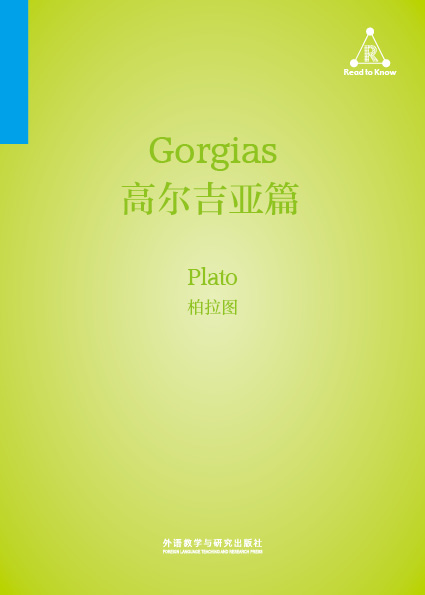柏拉图提示您:修辞术最终的关键标准还是善和美德。
The dialogue begins just after Gorgias has given a speech. Callicles says that Gorgias is a guest in his home, and has agreed to a private audience with Socrates and his friend Chaerephon. Socrates gets Gorgias to agree to his cross-examination style of conversation, asks him questions, and praises him for the brevity of his replies. Gorgias remarks that no one has asked him a new question in a long time, and when Socrates asks, he assures him that he is just as capable of brevity as of long-windedness (449c).
《高尔吉亚篇》中,柏拉图探讨了在伦理学、价值和社会领域中最为重要的几大主题:自由、幸福和正义。苏格拉底在驳斥智者时,阐明了唯有正义和良善之人才是自由的和幸福的。苏格拉底所提出的核心哲学问题是:我们应该过什么样的生活?知识和信念的区别是什么?如何区分快乐与善?同时也批评高尔吉亚是以优雅言辞娱乐他人的演说家,无需认识真理也能学习说服他人的技巧。
Gorgias (Greek: Γοργίας) is a Socratic dialogue written by Plato around 380 BC. In this dialogue, Socrates seeks the true definition of rhetoric, attempting to pinpoint the essence of rhetoric and unveil the flaws of the sophistic oratory popular in Athens at this time. The art of persuasion was widely considered necessary for political and legal advantage in classical Athens, and rhetoricians promoted themselves as teachers of this fundamental skill. Some, like Gorgias, were foreigners attracted to Athens because of its reputation for intellectual and cultural sophistication. In the Gorgias, Socrates argues that philosophy is an art, whereas rhetoric is a skill based on mere experience. To Socrates, most rhetoric in practice is merely flattery. In order to use rhetoric for good, rhetoric cannot exist alone; it must depend on philosophy to guide its morality. Socrates, therefore, believes that morality is not inherent in rhetoric and that without philosophy, rhetoric is simply used to persuade for personal gain. Socrates suggests that he is one of the few (but not only) Athenians to practice true politics.
- 高尔吉亚篇
- GORGIAS























 京公网安备 11010802032529号
京公网安备 11010802032529号
笔记加载中...